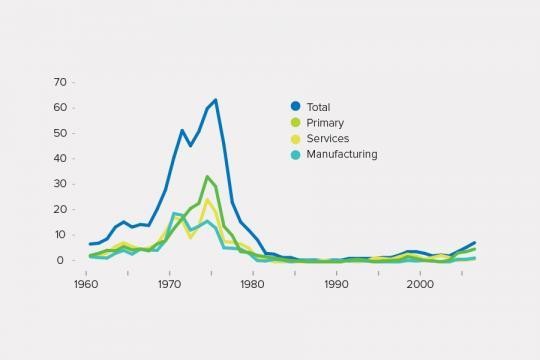Investors Grapple with EmergingMarkets Political Risk
Post on: 16 Март, 2015 No Comment

Related Content
From Ebola in West Africa to Russia’s obstinate President Vladimir Putin to a fanatical Islamic State in Iraq and Syria, investors in emerging markets face no shortage of calamities and political upheavals.
“It’s very hard to predict and qualify geopolitical risks,” says Julie Dickson. head of equities at Ashmore Group, a $71.3 billion, London-based investment manager focused on emerging and frontier markets. Geopolitical analysis is a fluid pursuit, notes Marko Dimitrijevic, founder and CIO of hedge fund firm Everest Capital, which manages $3 billion and also specializes in those markets. For example, governments and opposition groups can erode established political structures and institutions that guide economic growth, Dimitrijevic says.
To guard against geopolitical risks. emerging-markets managers are increasingly recruiting analysts who hail from or have lived in the countries they cover. Ashmore has offices in nine emerging-markets countries, including Brazil, China, Colombia, India and Turkey, and its team speaks more than 30 languages. Miami-based Everest has a long-standing relationship with strategic consulting firm RiceHadleyGates, which is headquartered in Washington and Menlo Park, California, and run by former U.S. secretary of State Condoleezza Rice, ex–U.S. national security adviser Stephen Hadley and former U.S. Defense secretary Robert Gates.
For investors, political worries are nothing new, says Timothy Bruce, director of traditional research at NEPC, a Boston-based investment consulting firm: “If we went back 20 years, I assure you a top five risk was geopolitical risk in emerging markets.” That blanket statistic is useless, however, Bruce states. What’s rarely captured and would be of great value, he says, is a year-over-year, region-by-region evaluation of the level of investor anxiety.
Last June political risk research and consulting firm Eurasia Group filled that void by launching its Political Risk Country Portfolio, a tool that lets users assess how changes in geopolitical risks across emerging economies may affect equity markets. “The Political Risk Country Portfolio was developed largely in response to demand from several clients for a set of research products that offered a more systematic framework for comparing political risk and also linked political risk to asset price performance,” says Alexander Kazan, practice head of emerging-markets strategy at New York–based Eurasia Group, founded by renowned political scientist Ian Bremmer.
The portfolio serves as an overlay to investors’ country allocations. Eurasia Group ranks nations by expected returns based on the outlook for political stability over the next six months. Such analysis will prove useful as it becomes more important to analyze political risk on a country rather than a regional level. “If you look at a distribution of economic growth and stock market performance, emerging markets are wildly divergent,” contends NEPC’s Bruce. As a result, investors are moving away from broad-basket emerging-markets indexes and into focused, country-specific funds, he says.
Everest’s Dimitrijevic observes that in the decade up to 2010, equity performance in emerging-markets countries was highly correlated as many of them benefited from China’s appetite for resources, especially commodities. “With Chinese growth moderating and global growth also suppressed, the easy gains from globalization are now no longer available,” he says. “We believe countries that establish and maintain a strong, independent institutional framework will therefore have a more pronounced competitive advantage versus countries that fail to reform and that do not support private enterprise.” Everest favors reform-minded India and Mexico, which hold the No. 1 and No. 3 spots, respectively, in Eurasia Group’s ranking.
“It’s very hard to separate the signal from the noise and to know what matters when,” warns Eurasia Group’s Kazan. For instance, market valuations can be misleading. Take Turkey (No. 21) and Russia (No. 24): Their low earnings multiples might beckon investors to buy, Kazan explains, but Eurasia Group suggests avoiding both based on political risk because valuations may get even cheaper in the months ahead.














